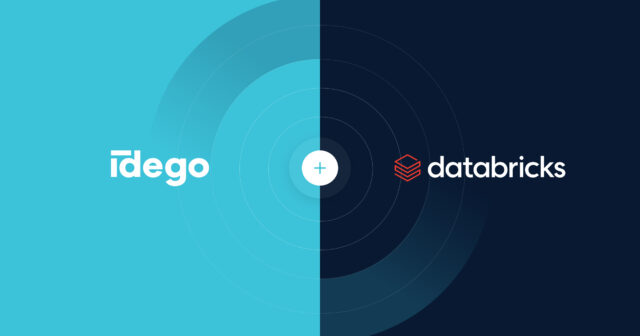
Artificial intelligence (AI) has revolutionized the tech industry in recent years, providing companies with the power to automate tasks, enhance decision-making processes, and boost overall efficiency. Yet, the use of open-source tools in AI has sparked legal concerns, underscoring the need for tech companies to navigate the legal implications of AI usage. In this article, we explore the legal aspects of AI with our expert, uncovering the potential risks and benefits for tech companies.
Benefits of AI tools usage: Copilot example
AI tools can automate routine and repetitive tasks, freeing up human resources to focus on more complex and creative tasks.
One example of an AI tool that has gained popularity in recent years is GitHub Copilot. Developed by GitHub in partnership with OpenAI, Copilot is an AI-powered code completion tool that uses machine learning algorithms to suggest code snippets and help developers write code more efficiently.
Copilot can be especially helpful for developers who are working on projects for clients with tight deadlines or complex requirements. By automating routine coding tasks and suggesting solutions based on historical data, Copilot can help developers work more efficiently and deliver projects on time and on budget.
However, it’s important to note that Copilot is not a replacement for human developers, and it’s important to review and test all code generated by the tool to ensure that it meets the required standards of quality and security.
Challenges in Using AI Open Source Tools
One of the main legal issues with using open source tools is compliance with licensing agreements. Open source licenses often have specific requirements that must be met, such as providing attribution to the original creator, disclosing any modifications made to the software, and releasing the source code to the public.
Another legal issue with using open source tools is the risk of intellectual property infringement. Open source tools may contain code that is protected by copyright or other intellectual property laws. If a tech company uses open source code without proper authorization or attribution, they may be liable for copyright infringement or other intellectual property violations.
Finally, the use of open source tools in AI may raise issues related to privacy and security. Open source code is often developed by a community of developers who may not have the same level of security expertise as professional developers. This can create vulnerabilities in the software that may be exploited by hackers or other malicious actors.
The most important thing for us is the security of data, so when working with open sorce tools, we take care to enter information that is not sensitive and additionally secure it with anonymization. We also guarantee that our work, even that created using the latest technologies, is our own author’s product, unique for the project.
“The use of open source software in AI can provide great value for technology companies, but can also create challenges if not done correctly. Compliance with open source licenses and intellectual property rights, as well as ensuring software security and privacy, are critical considerations for companies using open source tools in AI. Additionally, because AI is often used to process sensitive or critical data, companies must ensure that the use of open source tools does not compromise security or integrity.”
Marta, Legal Dept.
Working in AI TRiSM model
As the use of AI becomes increasingly prevalent in businesses across various industries, it’s important to ensure that the AI models being used are trustworthy, secure, and aligned with ethical and regulatory standards. This is where the AI Technical Risk and Security Management (TRiSM) model comes into play.
The AI TRiSM model provides a framework for managing technical risks associated with AI, such as privacy, fairness, reliability, and robustness. By adopting an AI TRiSM approach, organizations can mitigate these risks and ensure that their AI models are trustworthy and secure.
So, what does it mean to work in the AI TRiSM model? It involves implementing a range of solutions, techniques, and processes to ensure the trustworthiness, fairness, reliability, and robustness of AI models. Here are some key actions that can be taken to implement an AI TRiSM program:
- Having dedicated team to manage AI risks;
- Implementing collective privacy and security measures, such as data protection methods, access controls, and encryption;
- Using best-of-breed toolsets, such as open-source tools or vendor solutions, helpful to make AI models explainable or interpretable
- Providing solutions to protect data used by AI models
Conclusion
As an IT company, we understand the importance of using AI tools in a responsible and secure manner. We recognize that our clients trust us with their sensitive data and rely on us to develop innovative solutions that drive their businesses forward. Therefore, we are committed to using AI with awareness and imagination, ensuring that we prioritize data security, privacy, and ethical considerations at every stage of our development process.
We understand that the use of AI in tech projects can raise legal and ethical concerns, which is why we take a proactive approach to addressing these issues.
In a progressive world, we do not plan to limit ourselves to technologies that have been known for years; as a young and rapidly growing company, we go with the times. Thus, we use the potential of AI tools to make work even more enjoyable and creative, and we are already noticing the effects of increased efficiency. Moreover, we are working on AI solutions ourselves, which will soon be included in our offer.
Our partners expect innovation and creativity, and by leveraging AI tools, we’re able to offer cutting-edge solutions that set us apart from our competitors. We’re confident that our investment in AI will continue to pay dividends in terms of improved efficiency, higher quality work, and increased client satisfaction.
Piotr, CEO








 Andrzej Kopera • Sep 05
Andrzej Kopera • Sep 05

